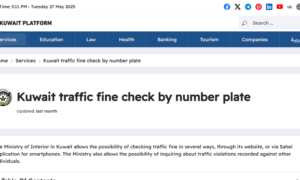Kuwait, located in the heart of the Arabian Gulf, is a growing hub for expats seeking employment, financial stability, and a unique cultural experience. Known for its tax-free income and modern infrastructure, Kuwait offers excellent opportunities for professionals and laborers alike. Whether you’re preparing for a new job or planning to bring your family along, this beginner’s guide provides essential insights into working and living in Kuwait.
Why Choose Kuwait?
Kuwait’s booming oil-driven economy, low crime rates, and high standard of living make it a popular choice for expatriates. With numerous job opportunities in sectors such as construction, healthcare, education, and engineering, it attracts a diverse workforce. The country’s central location in the Gulf also allows for easy travel to other major Middle Eastern and Asian destinations.
Understanding the Visa System
Before you can work in Kuwait, obtaining the right visa is essential. Kuwait offers different types of visas depending on the nature of your stay. For workers, especially domestic workers and laborers, the Visa 20 is a common entry permit. This visa is specifically for private sector domestic employees, and it’s important to understand the rules and regulations that govern it.
To learn more about this employment category, you can refer to this comprehensive guide on what is Visa 18 and 20 in Kuwait. It details eligibility criteria, application procedures, and rights under the Kuwaiti labor law. Understanding this will help you avoid common legal issues and ensure a smooth transition into your new role.
Bringing Your Family to Kuwait
Once you’ve secured employment, you may consider bringing your family to join you. Kuwait allows expatriate workers to sponsor their immediate family members under specific conditions. These include minimum salary requirements and suitable living accommodations. The process involves submitting documentation like employment contracts, proof of residence, and identification papers.
If you meet the eligibility criteria, you can apply for a Kuwait Family Visa. This visa allows your spouse and children to live with you in Kuwait. The process can be complex, so it’s advisable to consult detailed resources like this step-by-step guide to Kuwait Family Visa, which outlines the requirements, procedures, and fees involved in the application process.
Finding Employment in Kuwait
Securing a job before entering Kuwait is not just practical—it’s often a legal requirement. Most employers act as sponsors, which means your work visa is tied to your employment contract. This sponsorship system, known locally as “kafeel,” grants your employer certain responsibilities, including housing arrangements, salary commitments, and legal protections.
Many job seekers use online recruitment platforms or trusted agencies with experience in Gulf placements. Sectors like oil and gas, hospitality, education, and healthcare are constantly hiring qualified professionals. If you’re seeking domestic employment, working under a Visa 20 setup through licensed sponsors is a legal pathway.
Cost of Living in Kuwait
While salaries in Kuwait are tax-free, understanding the cost of living is important for budgeting. Accommodation is often provided by employers, but if not, rent can be a significant monthly expense. Other living costs such as groceries, transportation, utilities, and education are generally affordable compared to Western countries, especially for single workers.
However, if you’re moving with your family, costs can rise significantly, particularly in international schooling and private healthcare. Planning ahead with a clear financial strategy will help ensure long-term stability in the country.
Cultural Expectations and Social Life
Kuwait is a conservative Muslim country, and respecting local customs and traditions is crucial. Public behavior, dress codes, and social interactions are guided by cultural norms that all residents are expected to follow. Alcohol is banned, and public displays of affection are discouraged.
Despite this, Kuwait is home to a vibrant expat community. There are various cultural events, shopping malls, dining options, and recreational facilities catering to international residents. Social life may be more family-oriented, but many expats find comfort in forming community networks through churches, clubs, and social media groups.
Healthcare and Education
Kuwait provides a mix of public and private healthcare services. While public hospitals offer affordable care to residents, many expats prefer private clinics and hospitals for their faster services and English-speaking staff. It’s important to have health insurance that covers both routine and emergency care.
For those with children, Kuwait offers a range of international schools following British, American, Indian, and other curricula. Education costs vary based on the institution, so researching schools and budgeting for tuition is essential if you’re moving with your family.
Legal Requirements and Documentation
Living and working in Kuwait requires maintaining valid legal documents at all times. These include:
- A valid residency visa
- Civil ID (Bataqa)
- Work permit
- Health insurance
Failing to renew or carry these documents can lead to fines or deportation. It’s also important to stay informed about labor rights and protections under Kuwaiti law. Resources from trusted platforms like KuwaitFacts.com provide updates on changes in residency rules, visa categories, and employment regulations.
Transportation and Mobility
Kuwait has an extensive road network, but public transport is limited to buses and taxis. Many expats prefer to buy or lease a car. Fuel is relatively inexpensive, and driving is common among residents. However, obtaining a driver’s license in Kuwait can depend on your job title and salary bracket, so check eligibility before applying.
Tips for a Smooth Transition
- Research before you move: Understand visa types, labor laws, and your job contract thoroughly.
- Connect with expat communities: Join online groups to get firsthand experiences and advice.
- Stay legally compliant: Keep your documents up to date and understand local laws to avoid penalties.
- Embrace the culture: Learning basic Arabic phrases and respecting local traditions will enrich your experience.
Final Thoughts
Kuwait offers a rewarding lifestyle for expats who are prepared and well-informed. With high salaries, a safe environment, and growing career opportunities, it’s an ideal destination for individuals and families seeking a new chapter abroad. By understanding the visa process, employment regulations, and everyday life in Kuwait, you can make a confident and successful transition.
For more information and practical guides on working and living in Kuwait, visit trusted sources like KuwaitFacts.com. Whether you’re learning about the Kuwait family visa process or exploring Visa 20 regulations, staying informed is the key to a smooth and fulfilling experience in Kuwait.



































